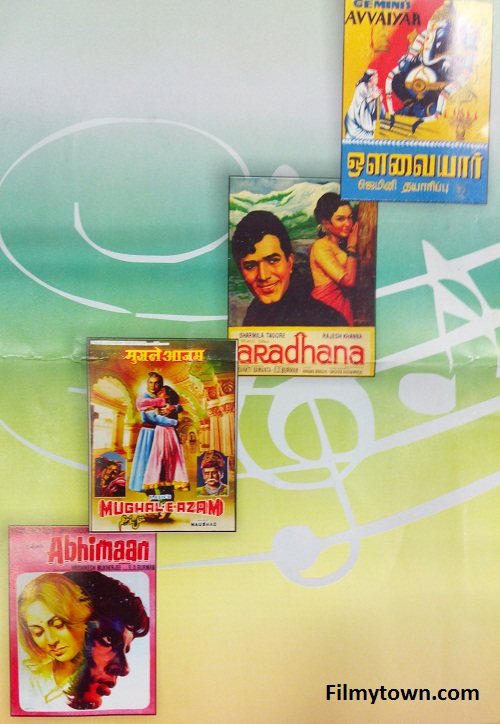Shri Bimal Julka, Secretary, Ministry of Information & Broadcasting inaugurated an exhibition of Film Posters organized at the Art Gallery yesterday in the Kala Academy, a part of the ongoing IFFI event.
Rhythm, Raga and Melody is an exhibition of a rare collection of posters of films of various languages of films produced in India. It depicts history of the Indian Cinema from 1931 when Alam Ara, the first film was produced and released in India.
On display are posters of Musical Classic Film of the 1930s and 1940s which depict the rich musical heritage of India.
Bimal Julka gratuitously inaugurated the exhibition in the presence of the stunning actress from China, Zhang Ziyi of the much acclaimed Chinese film Crouching Tiger, Hidden Dragon.
Indian life is full of musical festivities, like the instance of birth of a child, someone’s marriage, death of a beloved, or even in the day to day routine, there is always an inclusion of rhythms of bhajans, chanting of scriptures, churning and so on by the Indian womenfolk.

- Alpana Pant Sharma, Director National Film Archive of India
Alpana Pant Sharma, Director National Film Archive of India received the Chief Guest Shri Bimal Jhulka, Secretary, Information & Broadcasting Ministry of India.
Says Alpana, “The most popular raga in film music is found to be Pahadi, followed by Khamaj, Nat Bhairavi, Kaafi, Peelu, Yaman Kaliyan, Bheempalasi, Bihag which are the base of most of hit songs in Indian film industry”.
Festivals such as Dussehra, Diwali, Baisakhi, Onam, Navaratris and the most popular Holi, are musically very rich. Songs are integrated in the narrative of the film, as a routine natural progression. Music was prevalent in folk and professional theatre, especially the sangeet-nataks or nritya-nataks much before the advent of Cinema.
Present at the event was Anupam Kher, later joined with Shekhar Kapur, who was nostalgic about his maternal uncle Dev Anand’s film Guide poster included among the various classics of the Indian film Industry.
Shekhar Kapur personally showed around Zhang Ziyi who showed keen interest in the cultural heritage of Indian music. He explained her about the vivid details of music in Indian films.
With a feeling of excitement of a young girl in her eyes, Aplana proudly states that she is the first lady as the Director of NFAI. We too wish her all the best as it is her efforts which will chronicle and record this rich musical heritage of India, for generations to come.





